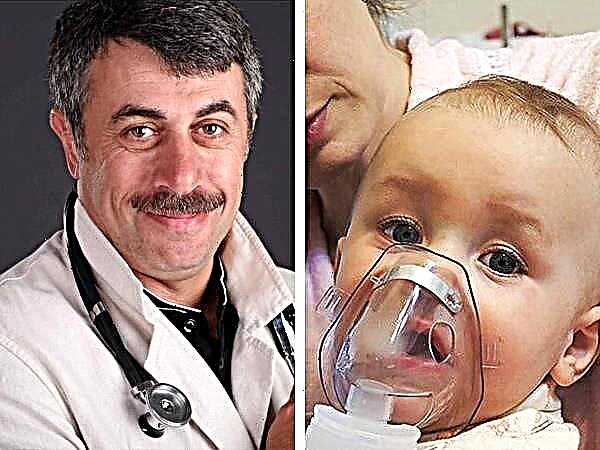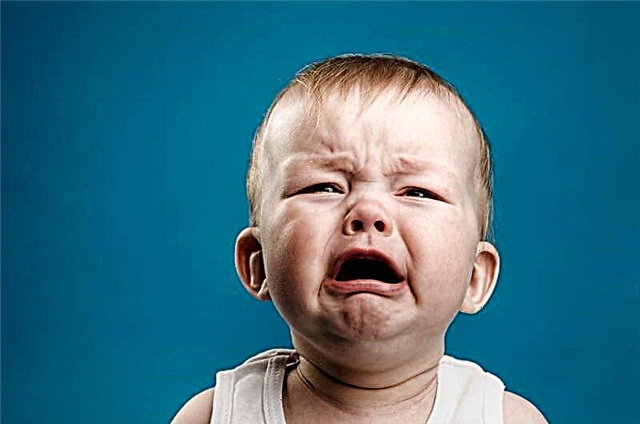
Diphenhydramine is one of the most well-known antihistamines. Such a drug was created many decades ago, but today it is used for allergic reactions or fever. Not everyone knows whether it can be used in childhood, how such a medication affects the child's body.

Release form
Diphenhydramine is produced in two forms:
- Ampoules with a 1% colorless transparent solution that can be injected into muscle tissue or vein. One ampoule contains 1 ml of medicine, and one box contains 10 ampoules.
- Round tablets of white color, placed 10 pieces in a blister or paper packaging. They are sold in 10-50 pieces per pack.

Composition
Diphenhydramine's action comes from an ingredient called diphenhydramine. In 1 ml of solution, it is presented in an amount of 10 mg, and in one tablet - in a dosage of 50 mg.
Additionally, the solution for injections contains only sterile water, and the auxiliary substances of the tablets are stearic acid, silicon dioxide, lactose monohydrate, corn starch and methylcellulose.


Operating principle
"Diphenhydramine" has the ability to affect receptors for such a mediator of an allergic reaction as histamine. By blocking these receptors, the drug quickly relieves swelling, smooth muscle spasm, and also helps eliminate itching and other allergy symptoms.
In addition, the medication has a hypnotic and sedative effect, since it also affects the histamine receptors in the brain, and is also capable of inhibiting the cholinergic structures of the brain (this effect is characteristic of first generation antihistamines). The drug has some local anesthetic and antiemetic effect.
The tablets taken orally begin to act in about 20-40 minutes, and the therapeutic effect lasts up to 4-10 hours. With injections, the effect of the drug is observed after a few minutes, and it lasts up to 12 hours. After metabolic changes in the liver, the active substance "Diphenhydramine" is completely excreted by the kidneys within 24 hours after administration.

Indications
The drug is in demand:
- With anaphylactic reactions.
- With angioedema.
- With urticaria.
- With allergic rhinitis.
- With serum sickness.
- With an allergic form of conjunctivitis.
- With itchy dermatoses.
- With chickenpox, to reduce the itching of the blisters.
- With air (or sea) sickness.
- For insomnia.
- For other allergic conditions.
Diphenhydramine is also often used for emergency treatment of children with fever. In such a situation, it is combined with "Analgin", and sometimes a third drug from the group of antispasmodics is added ( "No-shpu", "Papaverine" or "Drotaverin"). This combination of medications eliminates vasospasm and quickly normalizes body temperature, which is especially important if hyperthermia is life-threatening for the patient (for example, with a high risk of seizures).
In addition, a combined preparation is produced, including "Diphenhydramine" and "Analgin", in the form of suppositories. Such a remedy is called "Analdim"... It is used for children from 1 year old - with high body temperature or severe pain.

With a runny nose or sinusitis with a protracted course, ENT doctors may prescribe complex drops with "Diphenhydramine", which also include antiseptics, vasoconstrictors, antibiotics and other drugs. For the manufacture of such drops, an injectable form of the drug is used, and the doctor selects the prescription and dosage individually.

With laryngitis and false croup, the doctor may prescribe inhalations with "Diphenhydramine", for which a nebulizer is used. Such administration of the drug allows him to get directly to the site of smooth muscle spasm and edema, as a result of which such muscle fibers relax and the swelling decreases.

From what age is it allowed to take?
Diphenhydramine injections are used for children over one year old, but in some cases the doctor may prescribe such a medicine for an infant under one year old (from 7 months). The tablet form can also be used at different ages, but often such "Diphenhydramine" is prescribed for children over 7 years old, who can easily swallow the drug.

Contraindications
The medicine is not prescribed:
- With intolerance to diphenhydramine and other ingredients of the drug.
- With angle-closure glaucoma.
- With ulcerative lesions of the stomach.
- With epilepsy.
- With stenosis of the bladder neck.
The increased attention of the medical staff requires the use of the drug for children with bronchial asthma.

Side effects
During the treatment with "Diphenhydramine" there are:
- Weakness, deterioration of psychomotor reactions and coordination, drowsiness, hand tremors and other negative reactions of the central nervous system. In childhood, nervous excitement often appears and sleep is disturbed.
- Dryness of the mucous membrane of the nose or mouth.
- Violation of hematopoiesis, as a result of which hemolytic anemia develops and the level of other blood cells decreases.
- Decreased blood pressure, increased heart rate, or the appearance of extrasystoles.
- An allergic reaction such as itchy skin or hives.
- Violation of urination.

Instructions for use and dosage
At home, it is permissible to do only intramuscular injections, and the introduction of the drug into a vein should be controlled by doctors, so it is carried out only in a hospital.
A single dosage of injections depends on age:
- Baby 7-12 months, the drug can be administered as prescribed by a doctor (at a dose of 0.3-0.5 ml).
- To kid 1-3 years during one injection injected 0.5-1 ml solution.
- For babies 4-6 years drug volume for 1 injection is 1-1.5 ml.
- For a child older 7 years and before 14 year old age, a single dose will be 1.5-3 ml medicines.
- AT 14 years and older for one injection take from 1 before 5 ml solution.


The injection is repeated if necessary after 6-8 hours.
Tablet "Diphenhydramine" for a child older 7 years usually give 1/4 tablet, since the dosage of such a medicine for children 6-12 years is 15-30 mg... For a child younger 6 years the dose is selected by the doctor. Pill frequency - 1-3 times a day, and the duration of treatment with such a drug can be up to 10-15 days.

Overdose
If you do not follow the dosage prescribed by the doctor, this will harm the body of the little patient. An exceeded dose of "Diphenhydramine" affects the central nervous system and can both suppress it and stimulate it (excitement is more common in children). In case of an overdose of medication, symptoms occur that are during treatment "Atropine" - dry mouth, disruption of the gastrointestinal tract, dilated pupils and others. To eliminate them, you should rinse the stomach and immediately seek medical help.

Interaction with other drugs
"Diphenhydramine" is able to enhance the effect of drugs that inhibit the brain. This medication should not be combined with treatment with psychostimulants, as well as some other drugs noted in the annotation.

Terms of sale and storage
Diphenhydramine is a prescription drug, so you need a doctor's prescription to buy both tablets and solution. The shelf life of the medication is 5 years. Until it expires, the medicine should be stored at home at a temperature no higher than 25 degrees Celsius and in a dry place where the remedy will be inaccessible to babies.


Reviews
There are different reviews about the treatment with "Diphenhydramine". In most of them, the drug is praised for its quick therapeutic effect in case of various allergic reactions. If such a medication is included in the injection from the temperature, then almost all mothers note that the medicine enhances the effect of the antipyretic agent.
The temperature soon drops and the child's condition improves. Among the advantages of "Diphenhydramine" is also distinguished by its availability in pharmacies and low cost, and among the disadvantages, side effects are often mentioned.

Analogs
Other antihistamines can substitute for "Diphenhydramine" in the treatment of allergies in a child, for example:

Fenistil
Such a medicine in drops can be used from 1 month.

Zyrtec
These drops are prescribed for children over 6 months old.

Erius
Such syrup is prescribed at 1 year and for older children.

Suprastin
Such a drug often replaces "Diphenhydramine" in a lytic mixture. It is available in injectable form and tablets, it is prescribed from 1 month.

Diazolin
Such a medicine in the form of tablets or pills is prescribed from the age of 3.

Lomilan
This suspension is used for children over 2 years old.

For more information on antihistamines, see Dr. Komarovsky's program.



